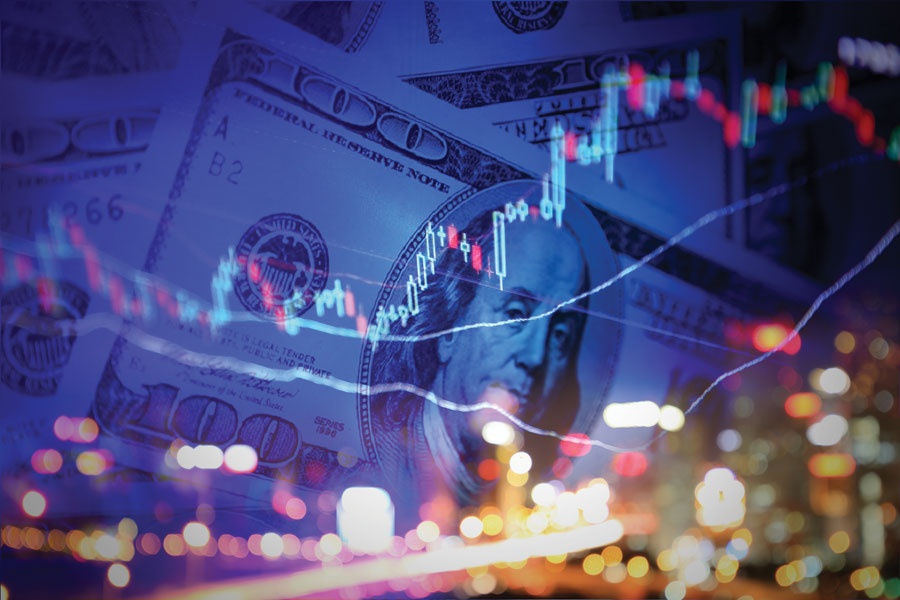Investors fixated on one 13-digit milestone last week, the value of Apple Inc. But another trillion-dollar threshold is in sight and is more relevant to the bull market in U.S. equities, Goldman Sachs says.
It's the volume of stock buybacks that corporate America is likely to announce this year. The total for S&P 500 firms will jump 46% from 2017 to an annual record, according to a revised estimate from the Goldman unit that executes share repurchases for clients.
The new forecast highlights accelerating demand from companies, a sign that any weakness in stocks is likely to be met with unbridled corporate buying. While August has been one of scariest months of the year for equities in the past decade, it's also the busiest in terms of buybacks, accounting for 13% of the annual total.
Now, with more than 80% of S&P 500 members having completed their quarterly financial reporting, most companies can boost discretionary buybacks, concluding a blackout period that typically restricts share repurchases.
"Investors should focus on a different $1 trillion number that will have a key influence on the market: total buyback authorizations," strategists led by David Kostin wrote in a note Aug. 3. "It's not the size of the company but the use of the cash that matters."
With a year-end forecast of 2,850 for the S&P 500, a level that's less than 10 points above the Aug. 3, Mr. Kostin is far from being the biggest bull among Wall Street strategists tracked by Bloomberg. Yet he said that the growing alarm around equities, particularly tech stocks, is unwarranted.
At the end of last month, Morgan Stanley's Mike Wilson predicted that declines in stocks such as Facebook were a precursor to a correction that would be more painful that the February rout. At the same time, strategists at Bank of America and Credit Suisse sent separate warnings about the crowding risk in tech stocks, particularly the
FAANG bloc of Facebook, Apple, Amazon, Netflix and Google parent Alphabet.
"Our analysis leads to a different conclusion," Mr. Kostin wrote. "Tech is less of a 'crowded trade" than many investors believe," he said, adding that Goldman's weekly data on hedge fund clients showed 26% net exposure to tech stocks. That compared with 25% for the broad industry positioning at the end of the first quarter, which declined from levels in 2016 and 2017.
Moreover, there is still untapped buying power left from tech companies themselves. While the sector has announced 40% more repurchases this year, their actual buybacks are up at only half that pace.
"By extension, significant potential demand remains for tech shares as firms look to complete their existing programs," the strategists wrote.
(More: Stock buybacks hit record, but is that a good thing?)







